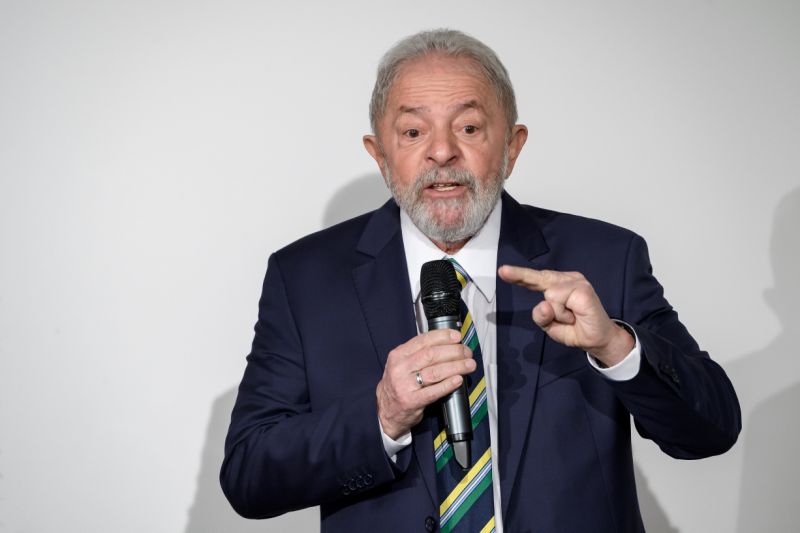RIO DE JANEIRO, BRAZIL – Shattered by defeat in the 2018 presidential elections and the lack of viable candidacies for two years from now, the PT (Workers’ Party) decided to retaliate with a new plan of initiatives to regain power.
The proposal, dubbed “Brazil’s Plan for Reconstruction and Transformation,” lists a number of measures that the party considers vital to “rebuild Brazil,” but ultimately echoes in the document countless proposals advocated in recent years by ex-president Luiz Inácio Lula da Silva and by major sectors of the party. In any case, the goal is for this plan to be the PT’s programmatic basis for the presidential candidacy in 2022, with or without Lula.

In both the economic and administrative areas, PT advocates more spending and a greater presence of public power. The party states, for instance, that it will advocate that “the state should work in favor of development, directly or through its companies, conducting or financing investments that change the social and economic reality.”
For the party, the execution of public works will be one of the vectors of its economic plan for being a “highly efficient instrument for the reduction of inequality”. The discourse is very similar to that adopted by the developmentalist wing of the Jair Bolsonaro government to convince the President to decide for this economic model, rather than prioritizing the liberal line advocated by the Minister of Economy Paulo Guedes.
The PT defends not only the flexibilization of fiscal goals, but also the adoption of measures such as “financing and using the resources of the foreign exchange equalization account and the equity gains of the international reserves to enable the financing of spending required to tackle the impact of Covid-19.”
The party also mentions “some US$380 billion in foreign exchange reserves accumulated by the PT governments” to say that “the country is not bankrupt” and that “there is no risk of insolvency of the foreign debt, as occurred several times in our past.”
On the public machine, one of the proposals is to increase the number of cabinet positions with Ministry status in the government, such as Labor, Women’s Policy, Policies for Promoting Racial Equality, and Culture.
Lula
As expected, PT reiterates in the document its argument for overturning the sentence that convicted ex-president Lula of passive corruption and money laundering in the Guarujá Triplex case. This decision makes him ineligible for elections under the Ficha Limpa (Clean Record) Law. His candidacy was barred by the Superior Electoral Court in 2018. According to the document, Lula’s acquittal would be a way to uphold the fight against corruption.
“The effective fight against corruption in Brazil essentially requires rescuing the credibility of the country’s judicial system, with the overturning of the illegal and arbitrary decision against Lula, through a writ of habeas corpus in the Supreme Court against the partiality of Sérgio Moro and the prosecutors of Lava Jato in Curitiba,” reads the document prepared by the Perseu Abramo Foundation and the PT leadership.
Criticism of the Bolsonaro government, called “fascist and obscurantist,” is the main focus of the document. The party argues that the country is experiencing a “scenario of instability,” with “military oversight of civil power,” and by “fascist and dictatorship, repression and torture-nostalgic Bolsonarism”.
As a result, PT argues that the main priority at the moment must be the defense of democratic freedoms. To this end, it proposes the creation of a Law for the Defense of the Rule of Law, which would presumably try to curb threats against Brazilian democracy. The proposal would be to repeal the National Security Law and establish legislation that would punish those who support torture and those who defend intolerance or historical revisionisms of a dictatorial nature.
Media
In the document, the PT again spoke of “regulating access to and use of electronic communication channels,” but it has already stressed that this will not be “censorship, as they falsely claim”. In a kind of nod to the return of assistance to bloggers sympathetic to the PT, which marked the administrations of Lula and Dilma Rousseff – and which also occurred in the Bolsonaro government – the plan also speaks of “strengthening small and medium-sized companies, as well as alternative media.”
Source: Veja

